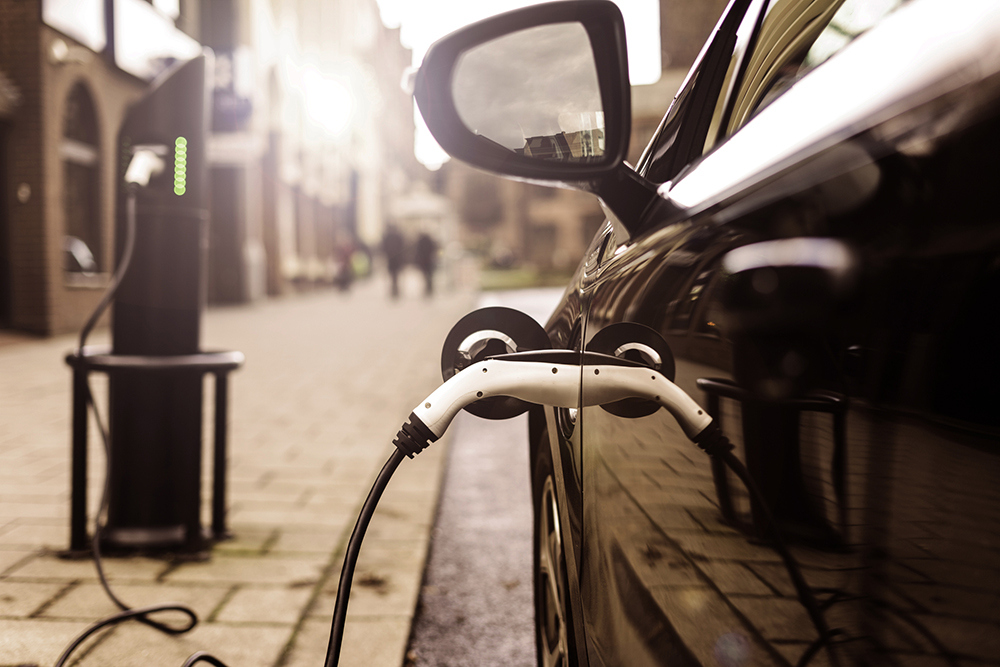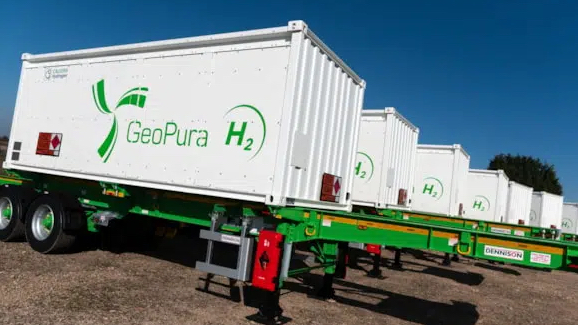
New homes and buildings such as supermarkets and workplaces, as well as those undergoing major renovation, will be required to install electric vehicle charge points from next year, under new legislation announced by prime minister Boris Johnson yesterday.
The move has been criticised for unfairly shouldering all the cost on the industry, rather than energy suppliers.
The new regulations are expected to result in up to 145,000 extra charge points being installed in England each year in the run up to 2030 when the sale of new petrol and diesel cars will end in the UK. This builds on the over 250,000 home and workplace charge points the government has already supported to date.
As well as new homes and non-residential buildings, those undergoing largescale renovations which leaves them with more than 10 parking spaces will be required to install electric vehicle charge points.
However, housebuilding organisations have reacted angrily to the new requirements, claiming it is yet another stealth tax on the industry.
Richard Beresford, chief executive of the National Federation of Builders (NFB), said: “We support the green industry and a green transition because it is a necessary part of change but due to how infrastructure investment works in practice, once again, the government is seeking to grow its political capital and advance big business, at the expense of the construction industry and taxpayer.”
“The government needs to think very carefully about how it achieves a green revolution. It must require electricity companies to shoulder this cost, as they will be profiting from these investments in perpetuity.”
The NFB said that to achieve planning permission, builders will have to fund substations so that electricity companies can provide enough load to new and old developments. These costs are considerable – upward of £50,000 for a handful of homes – and it is neither the builder, nor homeowner who profits from this infrastructure, it is the electricity companies “achieving revenue in perpetuity from someone else’s investment”, said Beresford.
There is also the concern that the type of charger being installed will not meet future grid or EV charging standards. The NFB has been telling the government that it needs to standardise EV charging infrastructure and grid strategy before mandating a solution that will require mass retrofitting.
Rico Wojtulewicz, head of housing at the House Builders Association (HBA), the housebuilding arm of the NFB, said: “This government has only been in power for two years and has already introduced four new and stealth taxes on the construction industry. EV charging will be the fifth. It’s a disgusting way to treat a sector who worked throughout the Covid-19 lockdown to help pay for furlough and the impact of Covid-19.
“The government needs to think very carefully about how it achieves a green revolution. It must require electricity companies to shoulder this cost, as they will be profiting from these investments in perpetuity. Or perhaps it is time to bring services into public ownership because the government is not proving able to regulate the sector in a way that doesn’t cost the taxpayer.
“As we told the prime minister during COP26 in relation to retrofitting and onshore renewable energy, it is time the Conservatives began risking some of their own political capital and not simply expecting taxpayers and business to risk their financial capital. The government’s green legacy is looking like taxation and flawed policy, not revolutionary change.”
The government has also confirmed nearly £10m in funding for a first-of-a-kind new hydrogen project at the UK’s largest onshore wind farm near Glasgow.
£9.4m will be invested into the Whitelee green hydrogen project to develop the UK’s largest electrolyser, a system which converts water into hydrogen gas as a way to store energy and supply local transport providers with zero-carbon fuel.
Developed by ITM Power and BOC, with ScottishPower, it has the potential to store and produce the equivalent of enough green hydrogen to fuel over 200 bus journeys travelling between Glasgow and Edinburgh each day.
Comments
Comments are closed.











This is typical house builders thinking of profit only and not the bigger picture.
The present day government has got it right this time and should be congratulated.
The government ought to be demanding that new dwellings have solar panels unless dispensation applied for. Then house builders can pass on costs and home buyers can get a benefit.
Typical response from the NFB. They have been successfully lobbying for years trashing plans to upgrade building regulations and move towards a low carbon and sustainable economy. Most of their houses built today will require extensive and costly retrofitting to bring up to net zero energy standards, all at the taxpayers’ expense. They are milking the help to buy scheme and now whinging at future proofing their developments. Time for them to do their bit for all our sakes?
As expected, being a virtuous green, Boris has not thought this through.
The costs of the EV will be rolled into the costs and the costs will be borne by customers. Local Authorities, Housing Associations, Hospitals etc and developers will add their mark up. Green costs or you get less quantity.
Change brings cost but its cheaper to install such things at construction rather than post build. legislation should also require the installation of solar PV/hot water systems on new builds where suitable, again cheaper at time of construction than post build.
I believe that Green [ blue] Hydrogen power is the future fuel and that all the electric and hybrid powered vehicles are a [ necessary ] stop gap
measure…?
JC